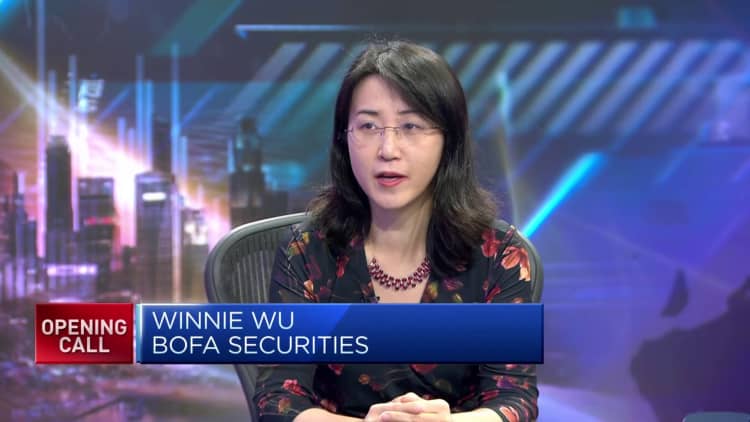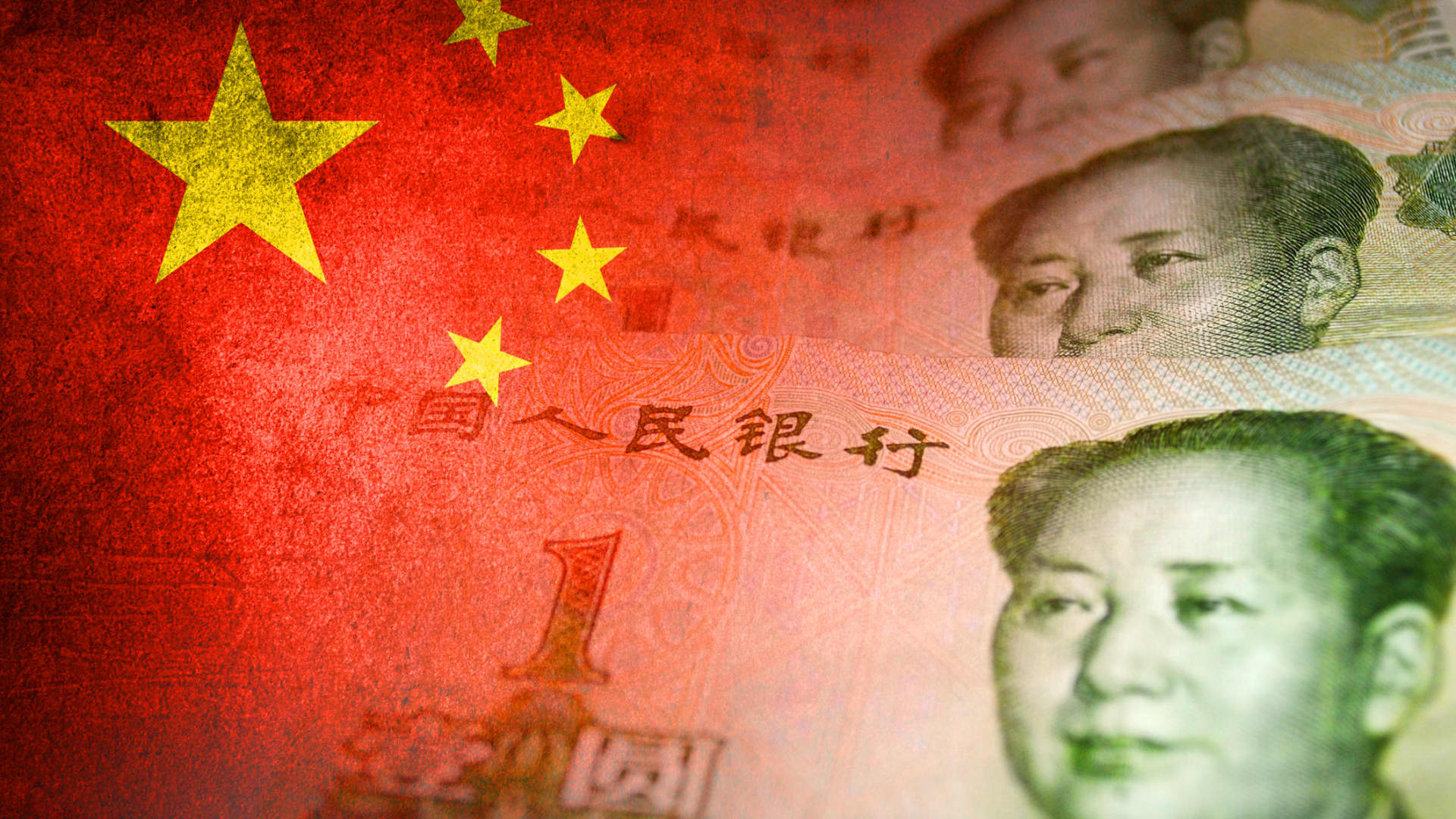China’s financial institutions urged to support property developers
An artwork juxtaposing Chinese yuan cash bills with the China’s flag
Javier Ghersi | Moment | Getty Images
China’s financial institutions should provide strong support to the country’s beleaguered real estate sector and not “blindly withdraw” financing for projects facing difficulties, according to a senior Chinese financial regulatory official.
His strongly worded comments follow the Chinese central bank’s largest cut in mandatory cash reserves for banks since 2021. Beijing also recently released a fresh policy mandate aimed at easing the cash crunch for Chinese developers, which have struggled under the crackdown on the sector’s bloated debt.
“The financial industry has an unshirkable responsibility and must provide strong support,” said Xiao Yuanqi, deputy director of China’s National Financial Regulatory Administration, at a press conference in Beijing on Thursday, according to a CNBC translation.
“We all know the real estate industry chain is long and involves a wide range of areas. It has an important impact on the national economy and is closely related to people’s lives,” he added.
China’s real estate troubles are closely intertwined with local government finances since they typically relied on land sales to developers for a significant portion of revenue.

The property market slumped after Beijing cracked down on developers’ high reliance on debt for growth in 2020, weighing on consumer growth and broader growth in the world’s second-largest economy.
“For projects that are in difficulty but whose funds can be balanced, we should not blindly withdraw loans, suppress loans, or cut off loans,” Xiao said. “We should provide greater support through extending existing loans, adjusting repayment arrangements, and adding new loans.”
Still, Xiao cautioned the latest relaxation of funding guidelines, which is only valid through the end of the year, is designed to be targeted.
“China’s state banks will issue operating property loans to real estate companies on the basis of controllable risks and commercial sustainability,” Xiao said.
“Eligible property developers may then use these loans to repay existing loans of real estate companies and open market bonds they have issued,” he said.
China’s Ministry of Housing and Urban-Rural Development held a meeting Friday morning that emphasized again that local regions could adapt the newly release property policy guidelines as needed, according to official reports.
While not new, the meeting is among several this week — pointing to official efforts to speed up implementation of recent policy announcements.

Beijing’s stimulus announcement on Wednesday also marked a rare decision to release news at a press briefing, suggesting the Chinese government is signaling its intent at a time when the country’s stock markets are teetering on the edge of capitulation.
Such policy moves are typically only published online and disseminated via state media. But the People’s Bank of China Governor Pan Gongsheng announced the forthcoming reserve ratio requirement cut and real estate policy in person.
Last week, Chinese Premier Li Qiang announced the country’s annual GDP growth figure in his address at the World Economic Forum in Davos — a day before China’s National Bureau of Statistics was scheduled to release the country’s official GDP print and other data.
— CNBC’s Evelyn Cheng contributed to this story.






